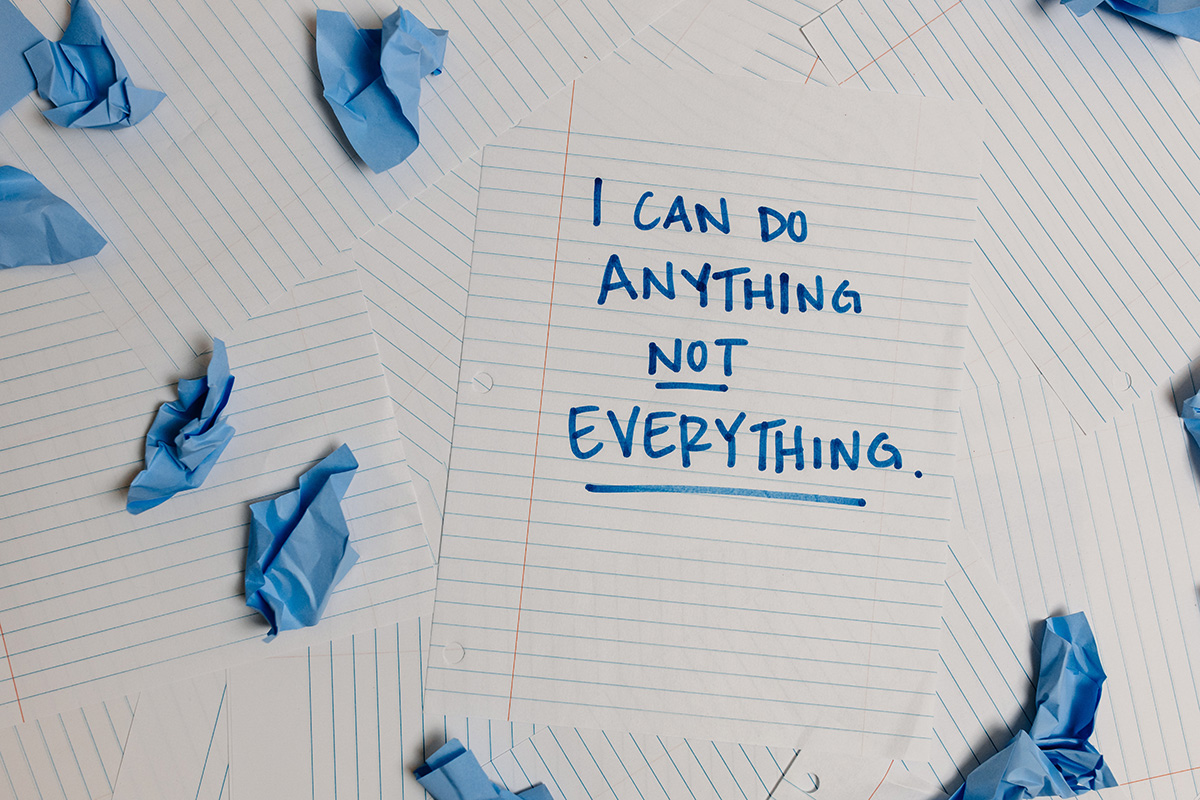Blog #24
Burn Out or Fade Away? How About Neither

The end of another year is approaching, which leaves us all taking stock of recent events. While 2020 will stand apart for most of us as one of the most challenging years in recent memory, personally and professionally, 2021 has been no picnic either. The impact of COVID-19 has continued to rumble into this year, and the so-called New Normal has required a significant degree of adjustment.
One of the biggest challenges facing many of us in recent times has been the threat of burnout. As we have all been encouraged to keep calm and carry on, doing our best to ignore the global pandemic-shaped elephant in the room while we meet our professional expectations, it’s harder and harder to keep going for many. A popular adage in the music industry claims that it’s better to burn out than fade away. I disagree. We owe it to ourselves and our families to do what we can to avoid either outcome.
Burnout was a theme discussed at the 2021 LEAD Conference that I attended and found extremely insightful. A presentation hosted by Emma Mainoo, Partner and Head of Mental Health at the culture change business Utopia, reduced many attendees to tears. Let me be clear, though. These tears were arguably the biggest compliment that could be paid to Emma, her research, and her delivery. Such an emotional reaction is appropriate for such an emotive subject, and it was genuinely inspirational that so many people developed the confidence to share their stories and experiences.
Emma’s presentation brought so many habits to light – things that I will hold my hands up and admit to being as guilty of as the next person. The classic question, “how are you?” is the obvious example. If we’re honest, we all ask this question without expecting a response beyond a hasty, “fine, thank you, and you?”
It’s almost as though we have entered into a communal social contract to transmit only in the workplace, and not receive any messages in return. That is just one of the steps toward burnout. If we’re not careful and do not take the time to listen to our colleagues, superiors, and subordinates, we’ll miss clear and present warning signs that all is not well. We would all appreciate acknowledgment if we’re struggling, so we should offer the same to others.
Before we go any further, though, let’s discuss the principle of burnout. Burnout is not a phenomenon exclusive to the current working landscape. In many cases in the past, it would simply have been referred to as stress. To quote Psychology Today, “burnout is a state of emotional, mental, and often physical exhaustion brought on by prolonged or repeated stress. Though it’s most often caused by problems at work, it can also appear in other areas of life, such as parenting, caretaking, or romantic relationships.”
Unlike stress, a healthcare professional will not offer a clinical diagnosis of burnout. It’s possible to be signed off work with anxiety, but sadly many still feel that a stigma surrounds such a decision. This does not mean that burnout can go ignored, though. It’s not simply a case of carrying on and waiting for burnout to pass. Left untended, depression and physical ill-health can often follow.
As I mentioned, the last year has been hellacious for a range of reasons. This raises the question – how do we know if we’re living on the brink of burnout? Are we just going through the motions during an unprecedented time, or are more significant stakes involved? How can we tell if we need to take action or whether feelings of exhaustion and melancholia are simply a side effect of holding down a job in the current global climate?
The idea of burnout has taken on a new identity with home working. On paper, the idea of working from home should reduce strain and toll on the mind and body of employees. We no longer need to spend time commuting. We can, theoretically, build our workplace duties around home commitments. Those of us that formerly spent long hours in the office get to be around our families more.
Alas, our jobs are not completed on paper. It is claimed that home workers are 72% likelier to suffer burnout than those that have returned to the office full-time. At this point, it seems valid to highlight that burnout does not only arise from taking on too much in too short a time. Burnout can also raise through sheer, monotonous tedium.
This is potentially why burnout has become more prominent in the age of Covid, with many of us working from home. When every working day is an unstinting act of routine, especially a potentially lonely one, with none of the spontaneity associated with colleagues and real-time human interaction, burnout can feel fast-tracked as we feel under an increasing amount of stress.
Of course, the obvious solution to burnout would seemingly be to approach a line manager and explain the situation. Discuss your worries and perhaps request a little time off, or at least a slight reduction in hours and workload pressure. This would help anybody restore a balance to their life and work. Alas, we don’t live in a perfect world. Most people do not feel comfortable engaging in such a conversation, fearing being branded “weak” and overlooked for future opportunities.
This also ignores another fundamental fact – our managers and HR teams are human beings too, and thus as likely to be at risk of burnout as the rest of us. What’s more, they have been just as blindsided by recent events as the rest of us. That’s not to excuse substandard or inappropriate management styles. In times of crisis, true leaders rise to the fore and ensure that teams feel valued, motivated, and able to continue. However, detailed training needs to be provided to help leaders to manage these situations. Aiding managers and support teams in providing relevant help and assistance, not just platitudes, sympathy, and promises that things will get better in the longer term, is critical.
All the same, as employees who face burnout, we can help our teammates – and ourselves – by establishing boundaries. Think about how much time and energy – both physically and emotionally – that we actually have. Emma’s suggestion was to visualise a “stress bucket” – and when that bucket is full of stress, it overflows. We need to avoid this by periodically emptying the bucket, ideally through a relaxing activity that has nothing to do with a stress trigger.
This could be as simple as, for example, spending time with your family and discussing something else. A change of scene may also do you good, though. Look into taking a class in yoga or pilates, releasing some endorphins through outdoor exercise, or taking up a new mindful hobby like swimming or learning to play a musical instrument.
However, if you choose to escape your reality, make sure you do so with regularity. Burnout arises when you are forced into the same routine, day after day, with no opportunity to reset your brain. It’s probably fair to say that all of us are dealing with some degree of fatigue right now, and with the holiday season coming, things are likely to get busier before they calm down. Take the time to protect your energy now. 2022’s version of yourself will thank you for it.
About LEAD Network Europe
The LEAD Network Europe is a non-profit and volunteer-led organisation whose mission is to attract, retain, and advance women in the consumer products and retail sector in Europe through education, leadership, and business development. The LEAD Network is run by and for its members, women and men, and we value every individual for their unique perspective. With a primary focus on promoting gender equality the organisation strives for the advancement of women of every race, ethnicity, gender identity or expression, sexual orientation, age, educational background, national origin, religion, physical ability and lifestyle. Its vision is of a fair, diverse and vibrant industry where everyone can thrive. A diverse workforce where both men and women are enabled to contribute their full potential and lead their organisations to the next level of value creation. LEAD Network accounts for 18,000+ members – both women and men – from 81 countries.
For more information, please visit www.lead-eu.net

